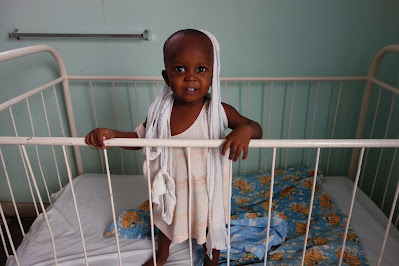Accompanying the Patient in Haiti--August 19, 2021
 |
| Photo by John Carroll |
In Haiti, nothing you do is ever enough. The needs are great and never-ending and the responsibility can be oppressive.
When I work in busy medical clinics in Haiti, it is frequently not “good enough” to just examine a patient and make a diagnosis. It is also necessary to pay for the labs, outpatient meds, chest X-ray, echocardiogram, transportation for these tests, hospitalization and surgery (if necessary), and any other odds and ends that come up along the way. And if travel to the States is necessary for the patient, we pay for the US visa, round trip plane tickets, and arrange their stay with an American host family. And then, if the patient makes it this far, post-operative care in Haiti is necessary for the next 20 years and falls on Haitian Hearts to do this as well. And all of this is necessary in the first place because one corrupt dysfunctional Haitian government follows another which leaves nothing for basic services for the 12 million Haitians who live downstream.
And, believe it or not, money is not the issue for me. It is the time spent and the emotional price involved in coordinating all of this with the patients and their families who have no understanding of the process and no real expectations for any success or cure coming their way.
Yesterday, Haitian Hearts paid for the inpatient care of a young teenage girl who was admitted to a Haitian hospital for ovarian cyst surgery. She recovered nicely and, of course, had no way to pay for her hospitalization including this surgery. And this particular hospital would not release her yesterday--even though she was medically cleared to leave--until her bill was paid. (This "hostage-taking" is not unusual in Haitian hospitals because they have to survive, too, with very little governmental assistance.)
Where does "accompanying" the patient on their medical journey end? Or does it?
I struggle with this.
John A. Carroll, MD
www.haitianhearts.org

Comments
Post a Comment